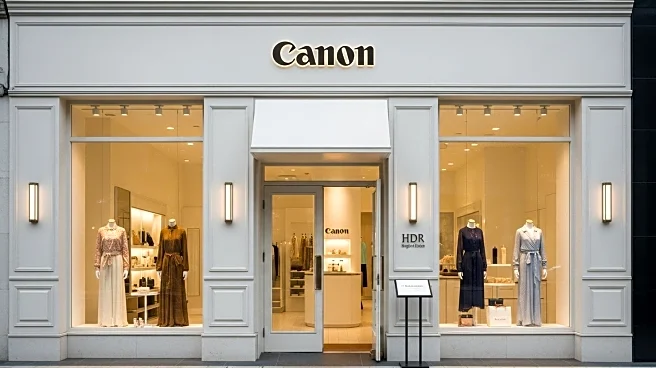What's Happening?
Fashion retailer White Stuff has reported a significant increase in sales, with revenues rising by 20% to £184 million for the fiscal year ending March 29, compared to £153 million the previous year. This growth is attributed to the opening of six new stores in locations such as Dartmouth, Ashford, Liverpool, Teeside, Saffron Walden, and London Gatwick. The company has seen a 41% increase in new shoppers, driven by brand awareness advertising and strategic store openings. Despite external pressures, White Stuff's focus on customer preferences and brand transformation has contributed to its success. The company has also undergone leadership changes, with Jo Jenkins stepping down as CEO in May following its acquisition by TFG London, and Tracey Verghese taking over as managing director.
Why It's Important?
The growth in White Stuff's revenues highlights the resilience of the retail sector amidst challenging economic conditions. The company's strategy of expanding its physical presence and enhancing brand awareness has proven effective in attracting new customers and boosting sales. This development is significant for the retail industry, as it demonstrates the potential for growth through strategic store openings and customer-focused initiatives. The leadership change and acquisition by TFG London may also influence the company's future direction, potentially impacting its market position and competitive strategy.
What's Next?
White Stuff plans to continue its growth trajectory by expanding the brand across all channels, driving product innovation, and enhancing customer experiences both in-store and online. The company aims to control costs and improve efficiencies, which could further strengthen its market position. As the retail landscape evolves, White Stuff's focus on customer engagement and brand transformation may serve as a model for other retailers seeking to navigate economic challenges and capitalize on growth opportunities.
Beyond the Headlines
The acquisition by TFG London and subsequent leadership changes at White Stuff may have broader implications for the company's strategic direction and operational focus. The emphasis on brand transformation and customer experience could lead to long-term shifts in the company's business model, potentially influencing industry standards and consumer expectations. Additionally, the success of White Stuff's store expansion strategy may encourage other retailers to explore similar growth avenues, impacting the competitive dynamics within the retail sector.









